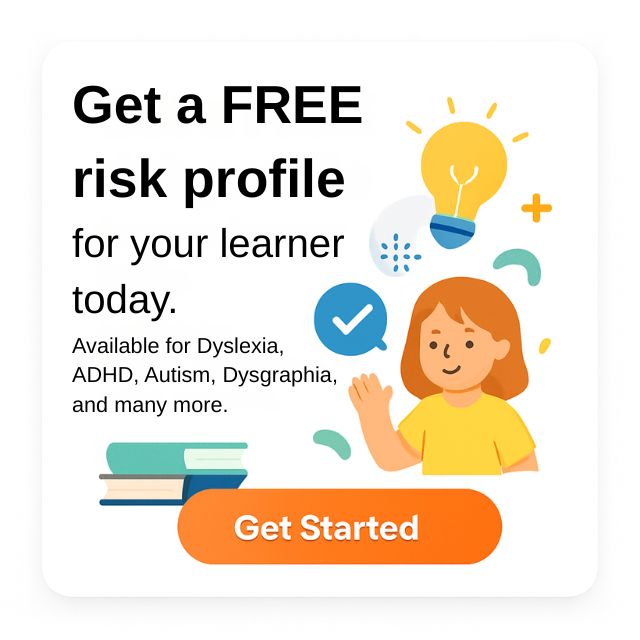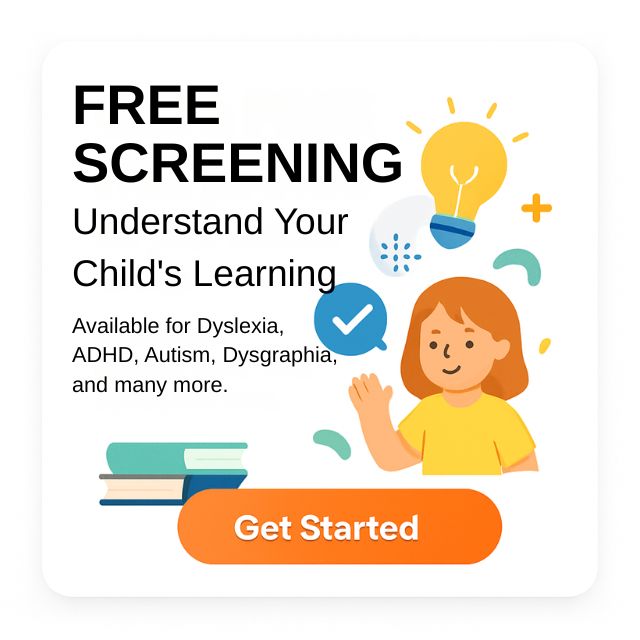Types Of Educational Assessments
There are several types of educational assessments used for children with learning disabilities and ADHD. Each assessment measures specific cognitive, academic, or behavioral areas, helping to create a targeted, personalized educational therapy plan. Here’s a breakdown of these assessments and their relevance to designing programs at EmpowerKidz:

1. Psychoeducational Assessments
What They Measure: These assessments evaluate a child’s cognitive abilities, academic skills, and sometimes social-emotional functioning. They often include IQ tests (such as the WISC or Stanford-Binet) and achievement tests (such as the Woodcock-Johnson or Wechsler Individual Achievement Test).How They Help: By identifying strengths and weaknesses in cognitive functions (like memory, processing speed, and problem-solving), these assessments provide a comprehensive overview of the child’s academic potential and specific challenges.
EmpowerKidz Approach: At EmpowerKidz, results from psycho-educational assessments guide our understanding of each child’s foundational cognitive skills. This helps us design interventions that address deficits in reading, math, or other areas where cognitive processing may be impacting learning.
2. Cognitive Assessments
What They Measure: These tests evaluate mental functions such as working memory, attention, processing speed, and executive function. Examples include the Cognitive Assessment System (CAS) and NEPSY.
How They Help: Cognitive assessments pinpoint areas of cognitive strength and areas needing improvement, which is especially important for children with ADHD and learning disabilities, as they often experience specific cognitive processing challenges.
EmpowerKidz Approach: The data from cognitive assessments helps us tailor activities that enhance attention, memory, and executive functioning skills, often through structured, interactive exercises and programs like Fast ForWord, which support cognitive development. We also conduct our own assessments using the SOI systems approach to customize the intervention plan.
3. Behavioral Assessments
What They Measure: Behavioral assessments look at attention, impulse control, and social-emotional functioning. Examples include the Conners Rating Scales for ADHD and the Behavior Assessment System for Children (BASC).
How They Help: These assessments highlight behavior-related challenges and allow us to understand how ADHD or other behavioral issues affect a child’s school performance and interactions with peers.
EmpowerKidz Approach: Behavioral assessment insights inform interventions that improve attention, impulse control, and self-regulation. At EmpowerKidz, we integrate activities focused on self-management strategies, social skills, and mindfulness techniques to support children’s classroom behavior.
4. Academic Achievement Tests
What They Measure: These tests assess specific academic skills such as reading, writing, and math. Common assessments include the Woodcock-Johnson Tests of Achievement and Kaufman Test of Educational Achievement (KTEA).
How They Help: Academic achievement tests pinpoint the child’s skill level and reveal any gaps in foundational knowledge, which is helpful for diagnosing learning disabilities like dyslexia or dyscalculia.
EmpowerKidz Approach: Achievement test results allow us to build individualized academic support plans, emphasizing the areas where children need targeted instruction. For example, for a child struggling in reading, we might incorporate structured literacy interventions or auditory processing support.
5. Language and Speech Assessments
What They Measure: These assessments evaluate receptive and expressive language, speech clarity, and listening comprehension. Tools like the Clinical Evaluation of Language Fundamentals (CELF) or the Peabody Picture Vocabulary Test (PPVT) are commonly used.
How They Help: Language assessments are essential for identifying issues in understanding, vocabulary, or auditory processing, which can affect reading comprehension and communication.
EmpowerKidz Approach: Language assessment results inform language-focused interventions, like the Fast ForWord program or structured language practice, to improve language comprehension and communication skills.
6. Functional and Adaptive Behavior Assessments
What They Measure: These assessments evaluate daily living skills, social interactions, and adaptive behaviors necessary for independence. Examples include the Vineland Adaptive Behavior Scales and the Adaptive Behavior Assessment System (ABAS).
How They Help: These assessments are especially helpful for understanding how children with learning disabilities or ADHD navigate daily tasks and social situations.
EmpowerKidz Approach: Based on functional assessment results, we can incorporate social skills training, self-regulation exercises, and executive functioning support into the educational therapy plan, emphasizing real-life applications.
7. Executive Function Assessments
What They Measure: These tests assess skills such as organization, planning, flexibility, and task initiation. Tools like the Behavior Rating Inventory of Executive Function (BRIEF) help identify specific executive functioning challenges.
How They Help: Executive function assessments reveal how well a child can organize, focus, and manage tasks independently.
EmpowerKidz Approach: At EmpowerKidz, we use this information to develop strategies and tools that help children improve time management, planning, and organization, critical for both academic success and daily life.
Integrating Assessment Results into Educational Therapy at EmpowerKidz
The results from these assessments provide a comprehensive picture of each child’s unique learning profile. At EmpowerKidz, we use this data to create personalized therapy plans that address each child’s specific needs by:
Focusing on Strengths: Building on cognitive and academic strengths to create a positive learning experience.
Targeting Weaknesses: Addressing weak areas, like working memory or reading fluency, through structured interventions.
Developing Life Skills: Teaching self-regulation, organization, and problem-solving skills to enhance independence.
By aligning the therapy plan with the child’s assessment profile, EmpowerKidz ensures a balanced approach that not only builds academic skills but also enhances cognitive, social, and behavioral strengths.
2411, Old Crow Canyon Road, Suites 140, San Ramon, CA 94583, USA
anupma@empowerkidz.com
+1 (669) 900-2315
© Copyright 2021 EmpowerKidz
Designed & Developed by Congruence Digital



Leave a Reply